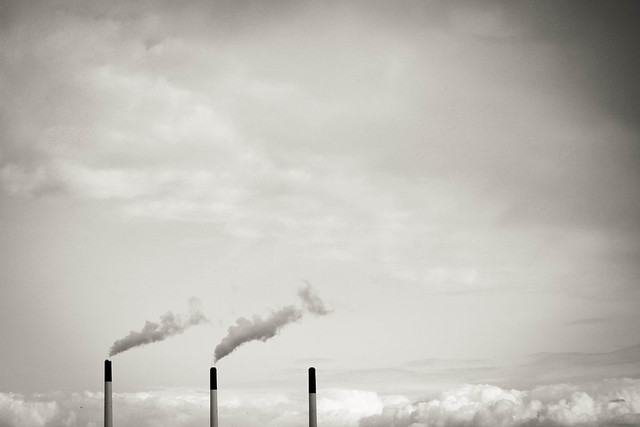Fracking: The Controversy (Part 3)
Natural gas development through hydraulic fracturing stands for job creation, energy security and has a long and clear record of safety. At least that’s what Bruce Vincent, president of the US-based oil and gas company Swift Energy and former IPAA chairman, says. If someone like Bruce Vincent makes statements like this, it adds authority to the subject: The IPAA is the American oil and gas association and it’s very influential. According to Bruce Vincent, the gas industry simply needs to educate people better about the facts:
The role fracking will play in creating jobs in the future appears to be a little less promising if we listen to Michael Feroli, Chef U.S. Economist at JPMorgan Chase & Co. (JPM):
“It is definitely a positive for the economy, but one can overstate how much of a positive. Oil and gas production account for about 1 percent of gross domestic products, and will have a limited impact on the country’s unemployment.”
At least fracking might be the cleanest way of burning fossil fuel – but then why is analyst Sue Tierney, energy consultant at Analysis Group, publicly worrying about irreversible changes within the ecosystem in the nearby future:
“Fifty years from now, are we really going to be wondering if we really screwed up because we went on this big gas boom? You really wouldn’t want to be messing that up.”
The american investigative journalist Jeff Goodell has his own response to that question:
“It’s not only toxic – it’s driven by a right-wing billionaire who profits more from flipping land than drilling for gas.”
In a detailed article in the Rolling Stone magazine in the March 2012 issue, he claims that
“Fracking, it turns out, is about producing cheap energy the same way the mortgage crisis was about helping realize the dreams of middle-class homeowners.”
His profound research, which is focused mainly on the business of the gas U.S. company Chesapeake Energy, raises – if it should turn out to be justifiable – a lot of questions about the main motives behind fracking:
“For Chesapeake, the primary profit in fracking comes not from selling the gas itself, but from buying and flipping the land that contains the gas. The company is now the largest leaseholder in the United States, owning the drilling rights to some 15 million acres – an area more than twice the size of Maryland. McClendon has financed this land grab with junk bonds and complex partnerships and future production deals, creating a highly leveraged, deeply indebted company that has more in common with Enron than ExxonMobil.”
Jeff Goodell‘s opinion about the CEO of Cheasepeake Energy is clear:
“Like generations of energy kingpins before him, it would seem, McClendon’s primary goal is not to solve America’s energy problems, but to build a pipeline directly from your wallet into his.”
But even if we put these claims aside for the time being, tthe doubts about fracking and its effects on the environment are just as serious. Let’s have a look at it.
There are allegedly 65 chemicals that could be components of the fracking fluids used by shale gas drillers: Benzene, glycol-ethers, toluene, 2-(2-methoxyethoxy) ethanol, and nonylphenols. All of those chemicals have been linked to health disorders if human exposure is too high.
Therefore, contaminated groundwater is one of the main issues that has raised safety concerns.
Also, the subject of flowback, meaning the waste of water, has been much discussed.
Dr. Anthony Ingraffea, D. C. Baum Professor of Engineering at the American Cornell University, has researched fracture mechanics for more than 30 years and stresses that drilling and hydraulic fracturing
“can liberate biogenic natural gas into a fresh water aquifer.”
Fresh-water Aquifers that provide sustainable groundwater some 100 meters under the earth surface to urban areas and for agricultural irrigation are critically important in human habitation and agriculture. Many villages and even large cities draw their water supply from wells in aquifers.
Read more about it and why fracking is under suspicion to cause a global water crisis in the compact booklet of the American NGO Food and Water Watch.
Earthquakes like the one that happened in the UK in 2011 could be a direct consequence of the underground explosions from the hydraulic fracturing process. Cuadrilla Resources, the UK company who has been associated with the earthquake stated in a press release:
“The hydraulic fracturing of Cuadrilla’s Preese Hall-1 well did trigger a number of minor seismic events. The seismic events were due to an unusual combination of geology at the well site coupled with the pressure exerted by water injection as part of operations.”
Additionally, there is the claim that methane air emissions caused by the hydraulic fracturing process are very high and that they could offset alleged climate benefits of unconventional gas production.
The independent research and non-profit organization “Center for Research of Globalization”, based in Montreal, published an online article in May 2012 that claims the following:
“During the uproar over the BP Deepwater Horizon Gulf of Mexico oil spill, the Obama Administration and the Energy Department formed an advisory commission on Shale Gas. Their report was released in November 2011. It was what could only be called a “whitewash” of the dangers of shale gas.”
John Deutch, Chairman of the subcommittee who acquired the so-called Deutch report in spite of it all called shale gas
”the best piece of news about energy in the last 50 years.”
Undeterred proclamations like these go up against the recurring concerns that have come up in public discussion. Read 4th further in this blog series to find out more about fracking, and how it’s discussed as a clean bridge technology to a clean future.






